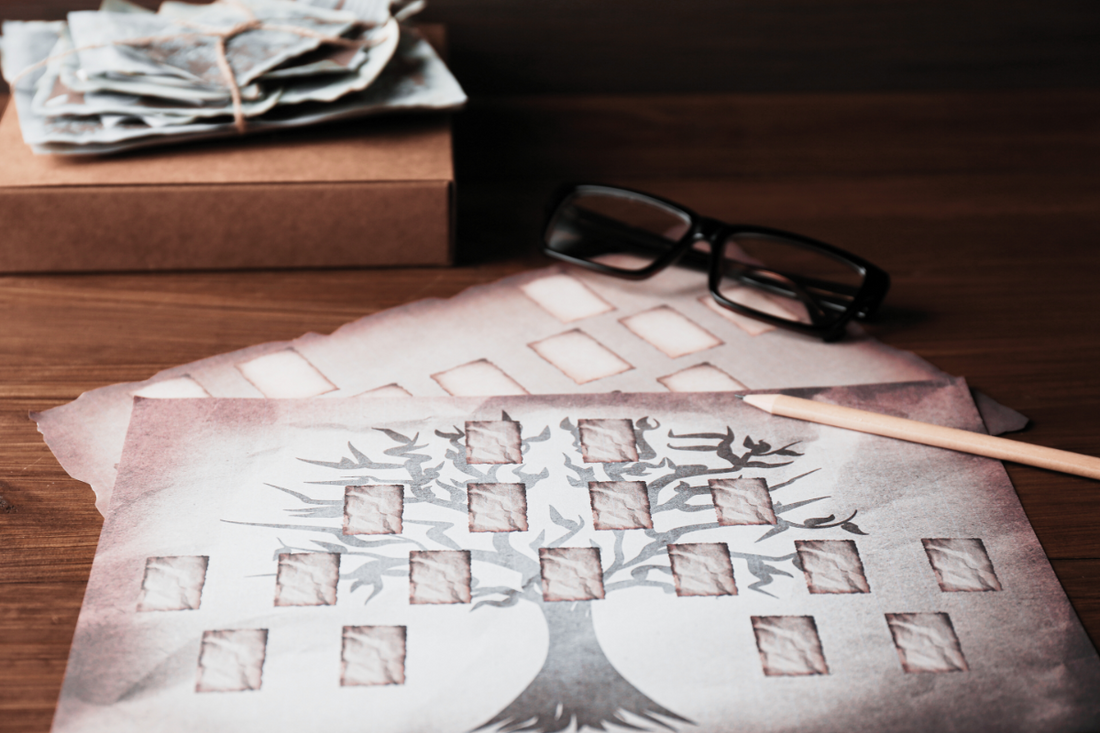
The Ancestral Shadow: What We Inherit, Unpacking Generational Wounds, and How Working with Your Lineage Can Break Cycles
Share
Do you ever find yourself reacting to situations in ways you can't quite explain? Perhaps you have an inexplicable fear of speaking up, a pattern of shutting down around certain people, or beliefs about relationships that don't seem to come from your own experiences. If you identify with that, you might be carrying what we call the ‘ancestral shadow’, the invisible inheritance of generational wounds that shape our lives without us knowing.
What’s behind our inherited pain?
The ancestral shadow is the habits, patterns, and beliefs we carry that can feel so foreign to us. Modern research in epigenetics ( the study of how life experiences, such as trauma, stress, and emotional patterns can leave chemical marks on our DNA that influence how genes are expressed) is beginning to validate what many cultures have long understood. Trauma and emotional patterns can be passed down through generations at a cellular level. When entire cultures experience persecution or trauma, the emotional imprint of these experiences becomes encoded in our genes, affecting descendants who never directly experienced the original wounds.
This isn't just theoretical. Many people discover inexplicable fears or reactions that make perfect sense when viewed through the lens of their family history. A woman might have an unexplained wariness of men despite no personal negative experiences, only to later learn about abuse in her maternal lineage. Three sisters might all instinctively shut down when men enter a room, carrying forward a protective pattern that once served their ancestors but now limits their own lives.
Recognising what isn't truly yours
When you notice patterns that trigger you or behaviours you can't explain, ask yourself: "Where does this come from?". If you can trace the reaction back to your own experiences, you're likely dealing with personal healing work. But if you find yourself thinking, "I actually don't know why I have this," you might be encountering an ancestral pattern.
These inherited wounds often manifest as repeating cycles. You might find yourself asking, "Why do I keep doing this when I know I don't want to?" Whether it's difficulty trusting others, fear of visibility, or unconscious beliefs about your worth, these patterns often feel both deeply familiar and frustratingly foreign.
Think about the messages you absorbed growing up. Perhaps your mother made disparaging comments about men, carrying forward her own mother's protective warnings. Maybe your family held unconscious beliefs about money, success, or speaking up that originated from historical persecution or cultural trauma. These aren't conscious choices, they're survival patterns that have been handed down through generations.
The power of stories and connection
Working with your ancestral shadow doesn't mean that you need to do dramatic rituals or complex genealogical research. Sometimes the most powerful healing comes through understanding the stories and folklore of your cultural background. These stories offer insight into how your ancestors lived, what they believed, and what challenges they faced.
Folklore serves as a bridge between past and present, helping us understand that the struggles we face aren't unique to us. When you read about people from long ago dealing with similar emotional challenges, it can provide a sense of relief. Relief that you're not alone in your suffering, and you're not broken for feeling the way you do.
Breaking the cycle
The journey toward healing ancestral wounds begins with recognition and gratitude rather than rejection. These patterns once served a purpose, protecting your ancestors from real threats. The goal isn't to eliminate this inheritance but to integrate it consciously into your life, taking what serves you and releasing what doesn't.
Start small. Create a simple practice of acknowledging your ancestors, perhaps a small table with their photographs and a weekly candle lighting. Journal about patterns you notice, approaching them with curiosity rather than judgment. When you catch yourself falling into inherited reactions, pause and ask: "Is this mine to carry forward?"
Most importantly, remember that each generation has the opportunity to evolve. You can honour your ancestors while choosing to break cycles that no longer serve. By doing this work, you aren’t just healing yourself, you're preventing these patterns from passing to future generations. Just one thing to remember, when you’re working on breaking cycles, you might try to sabotage yourself because deep down, you don’t really believe that you deserve to be happy-but you do!
